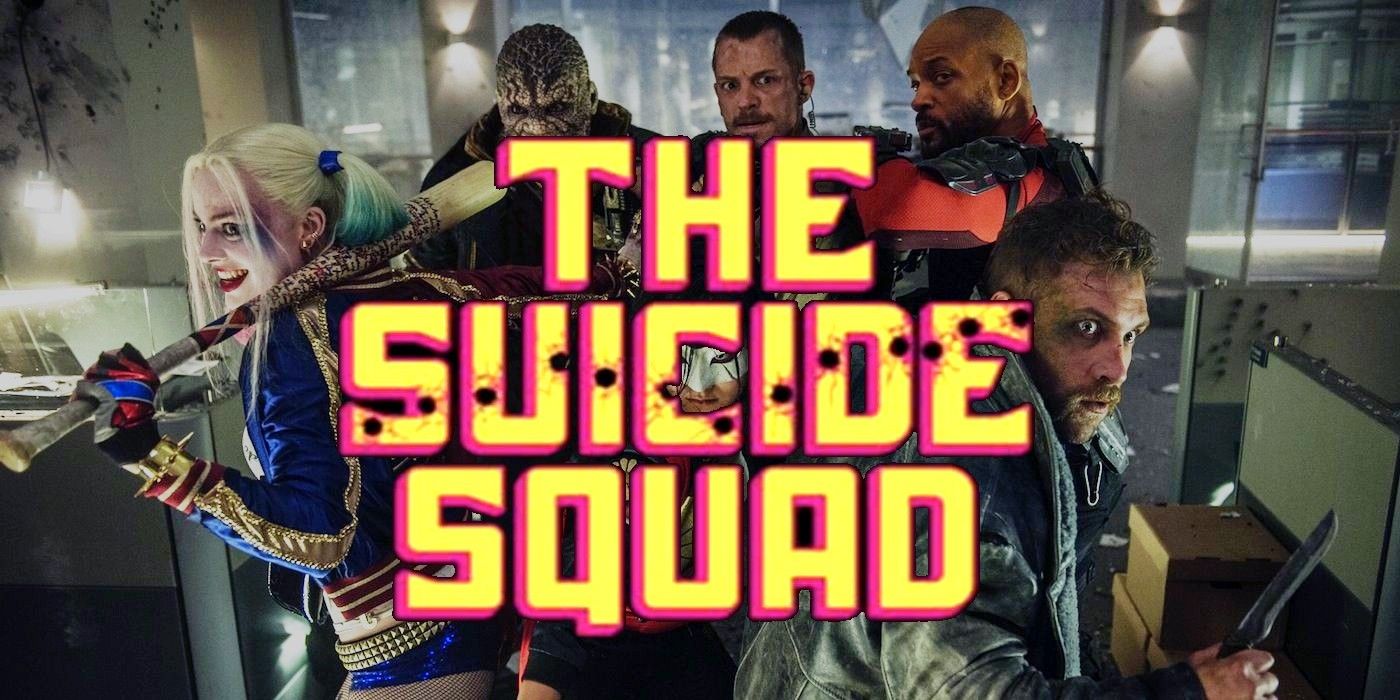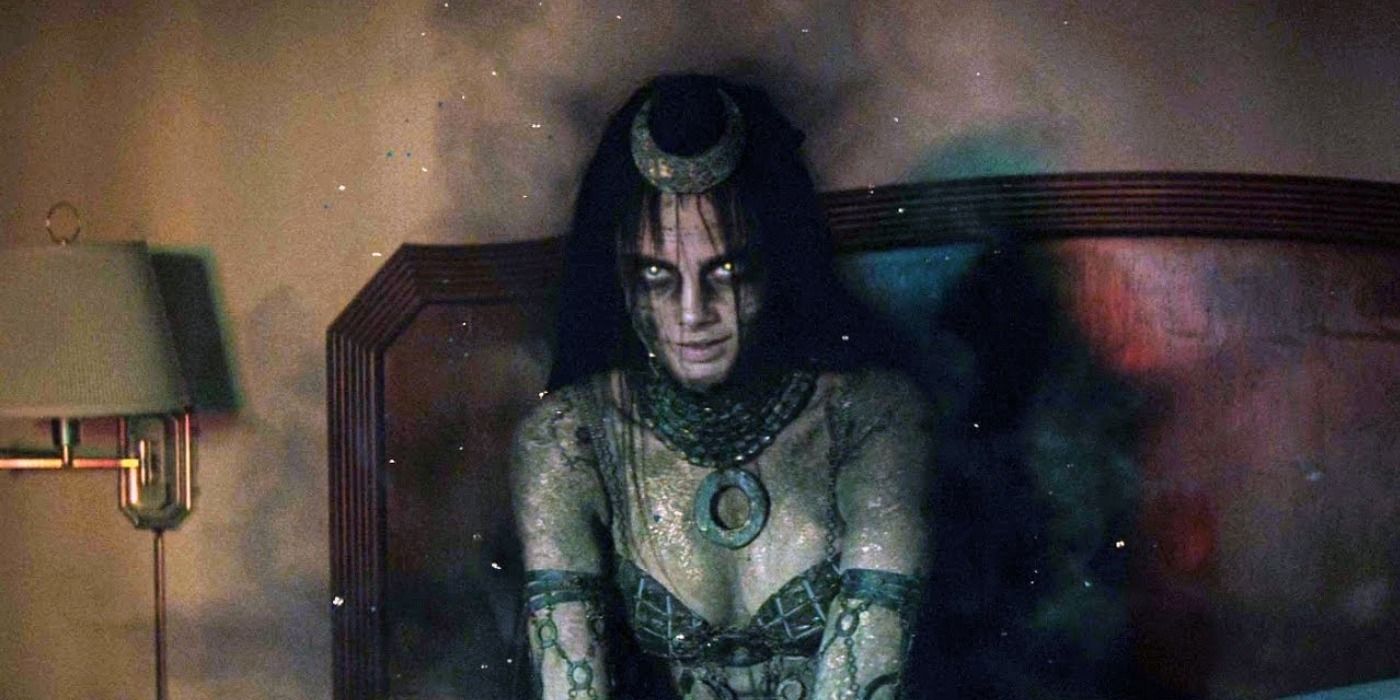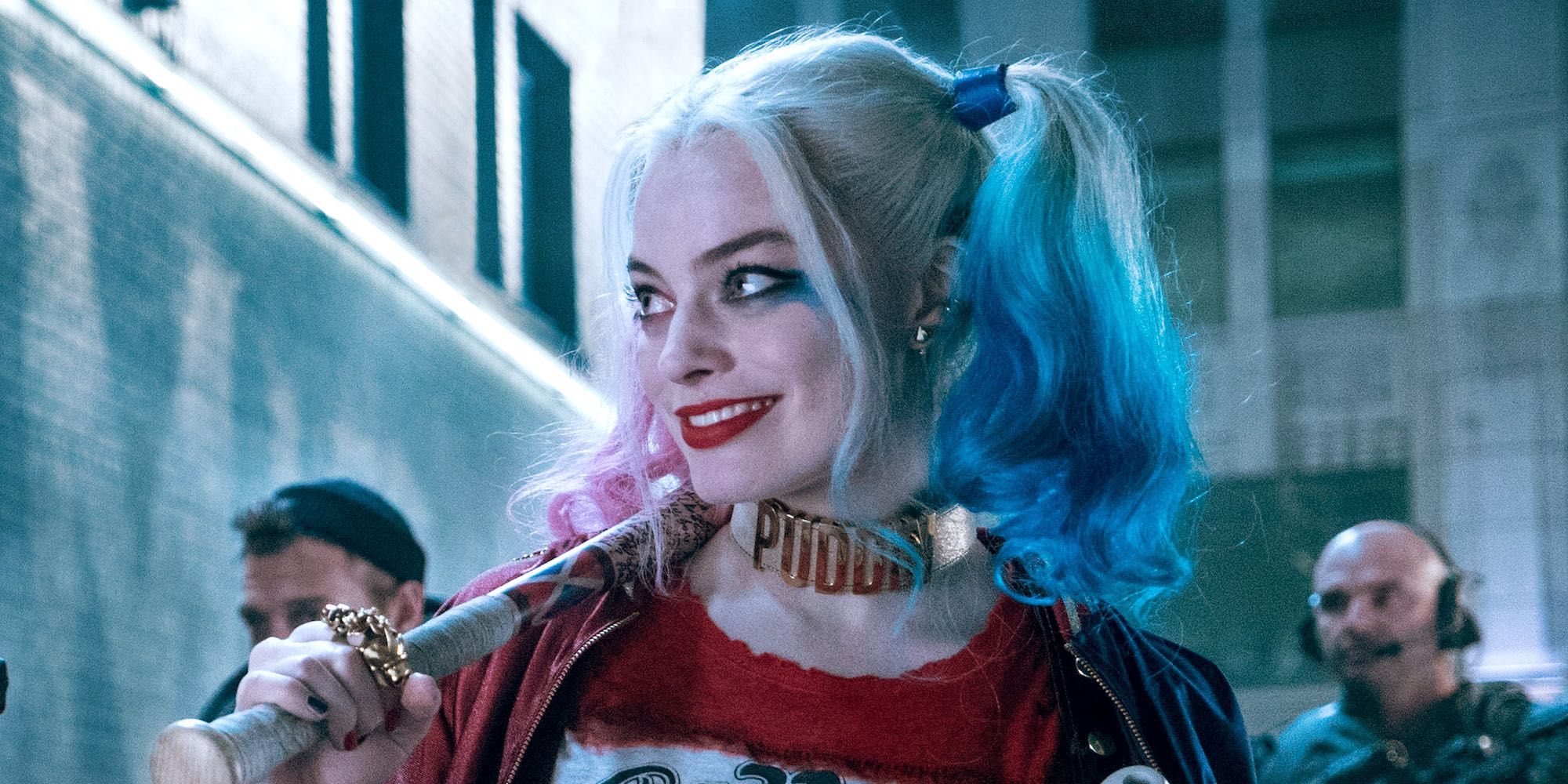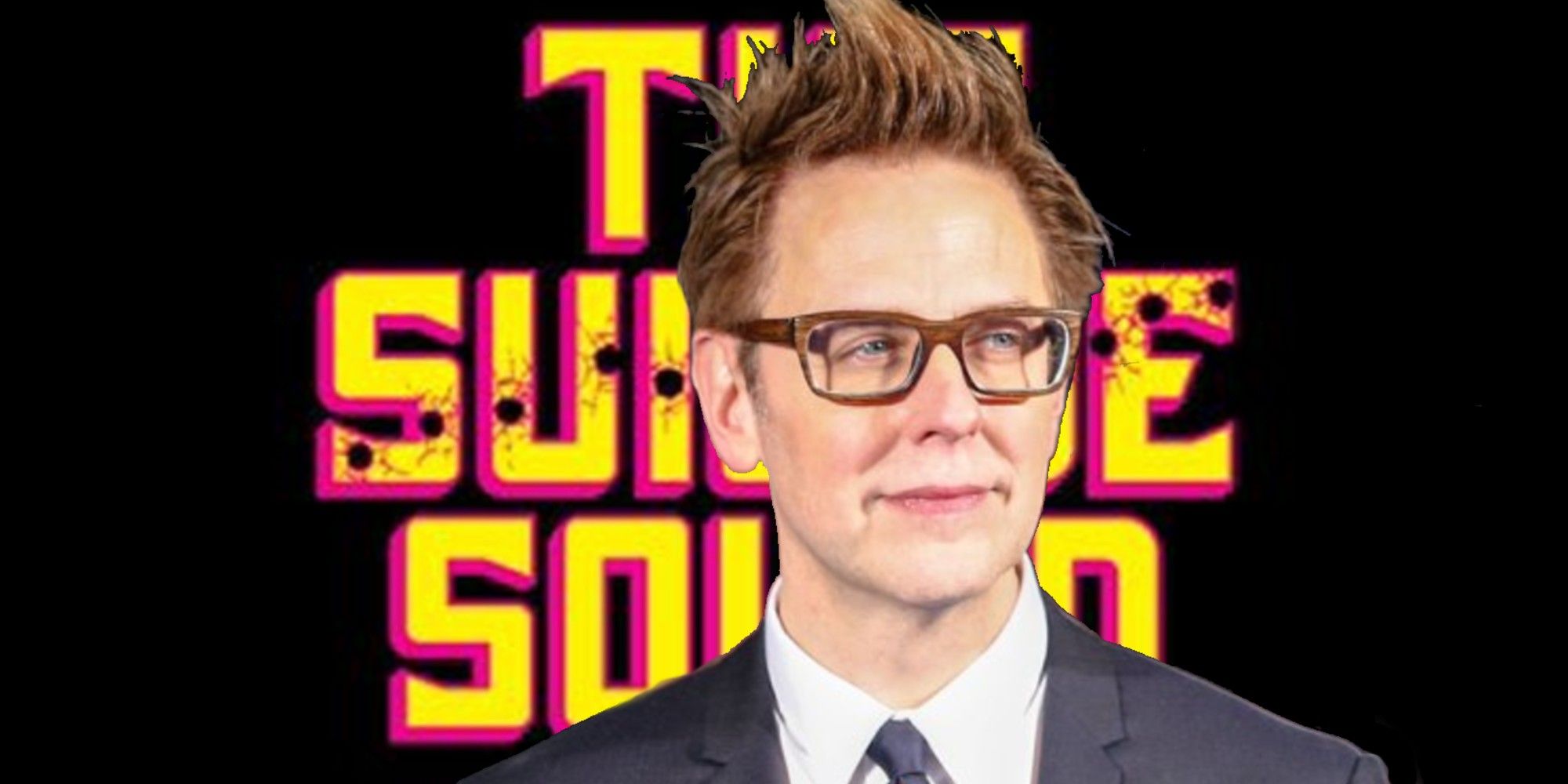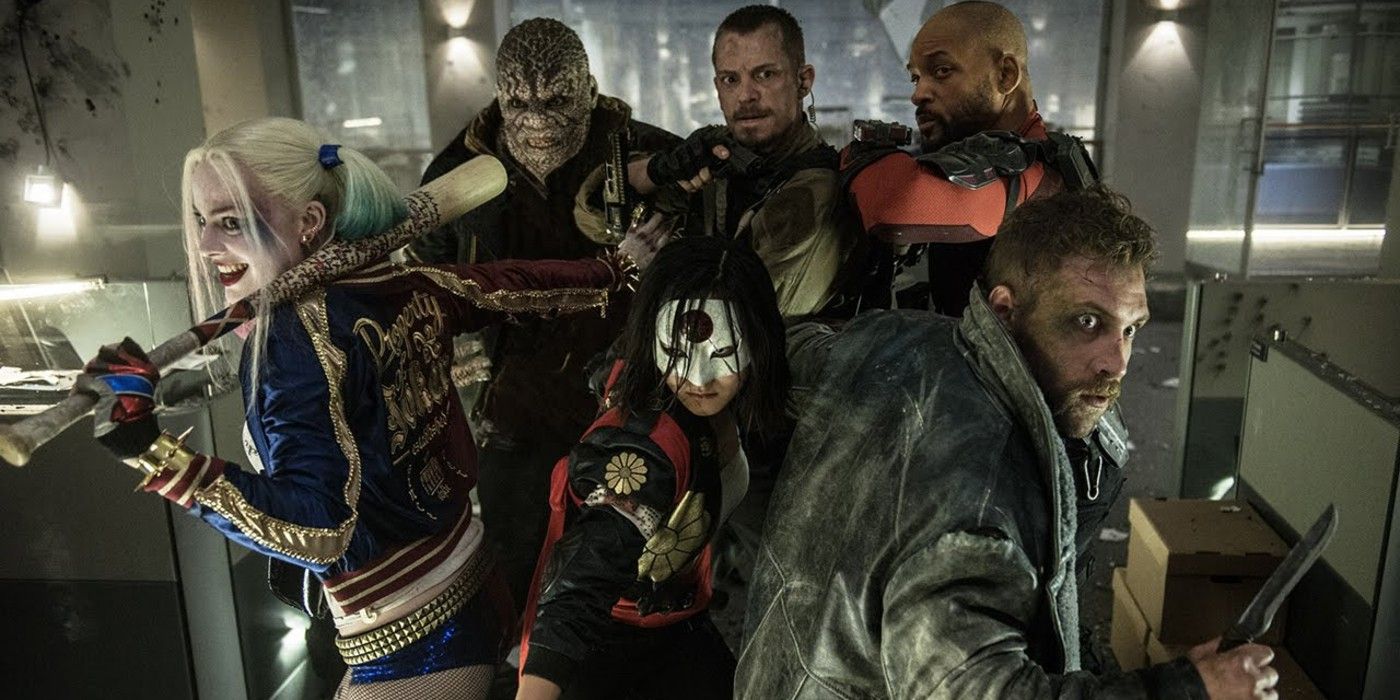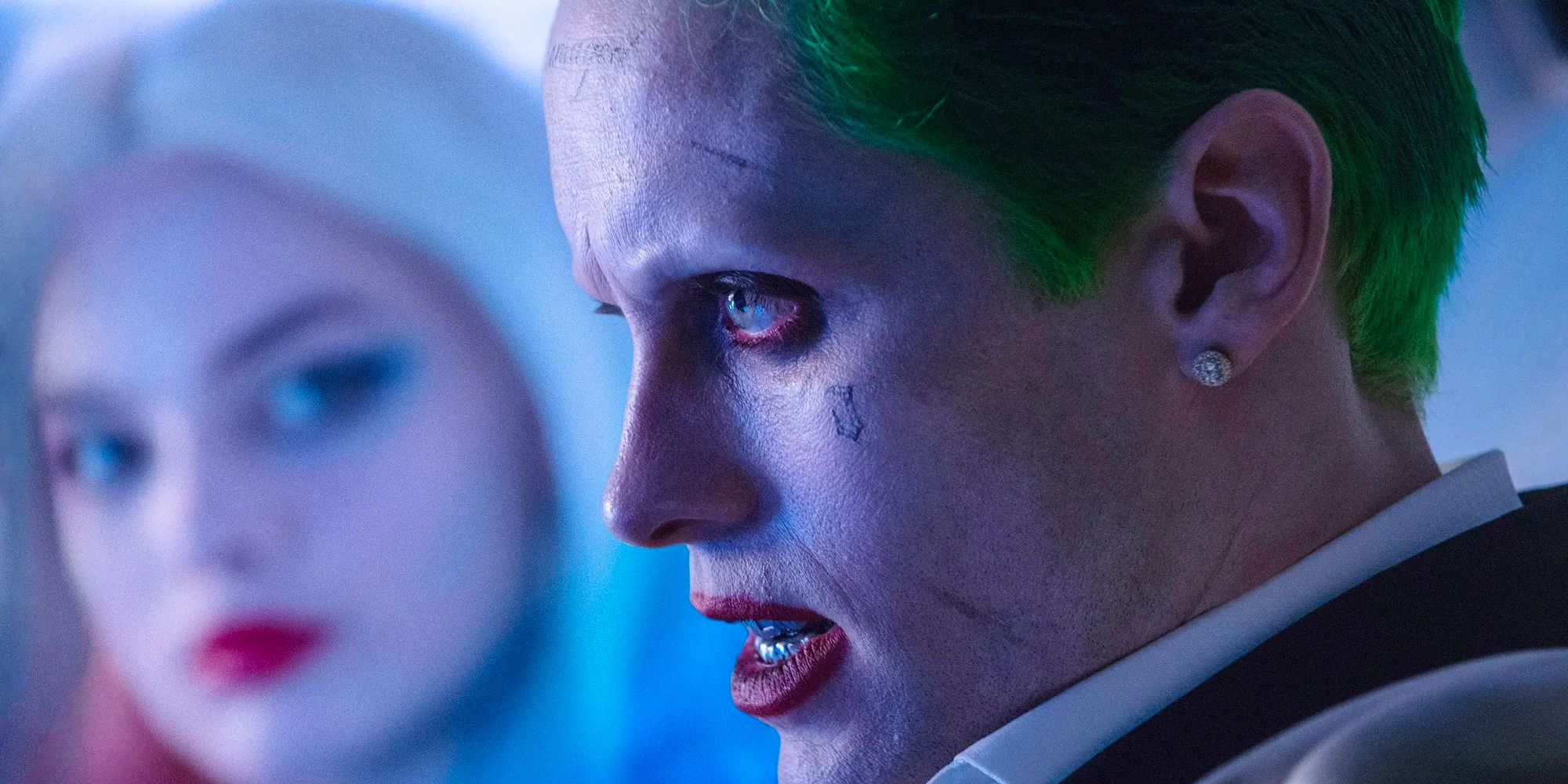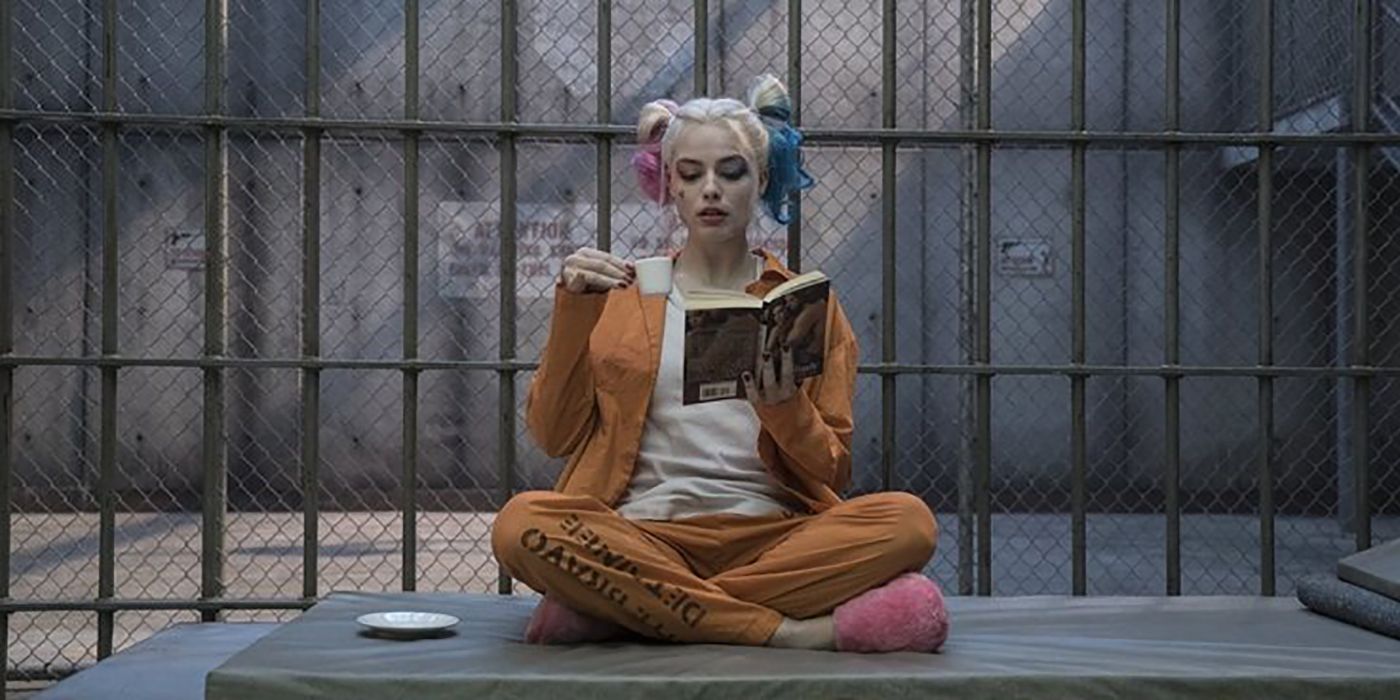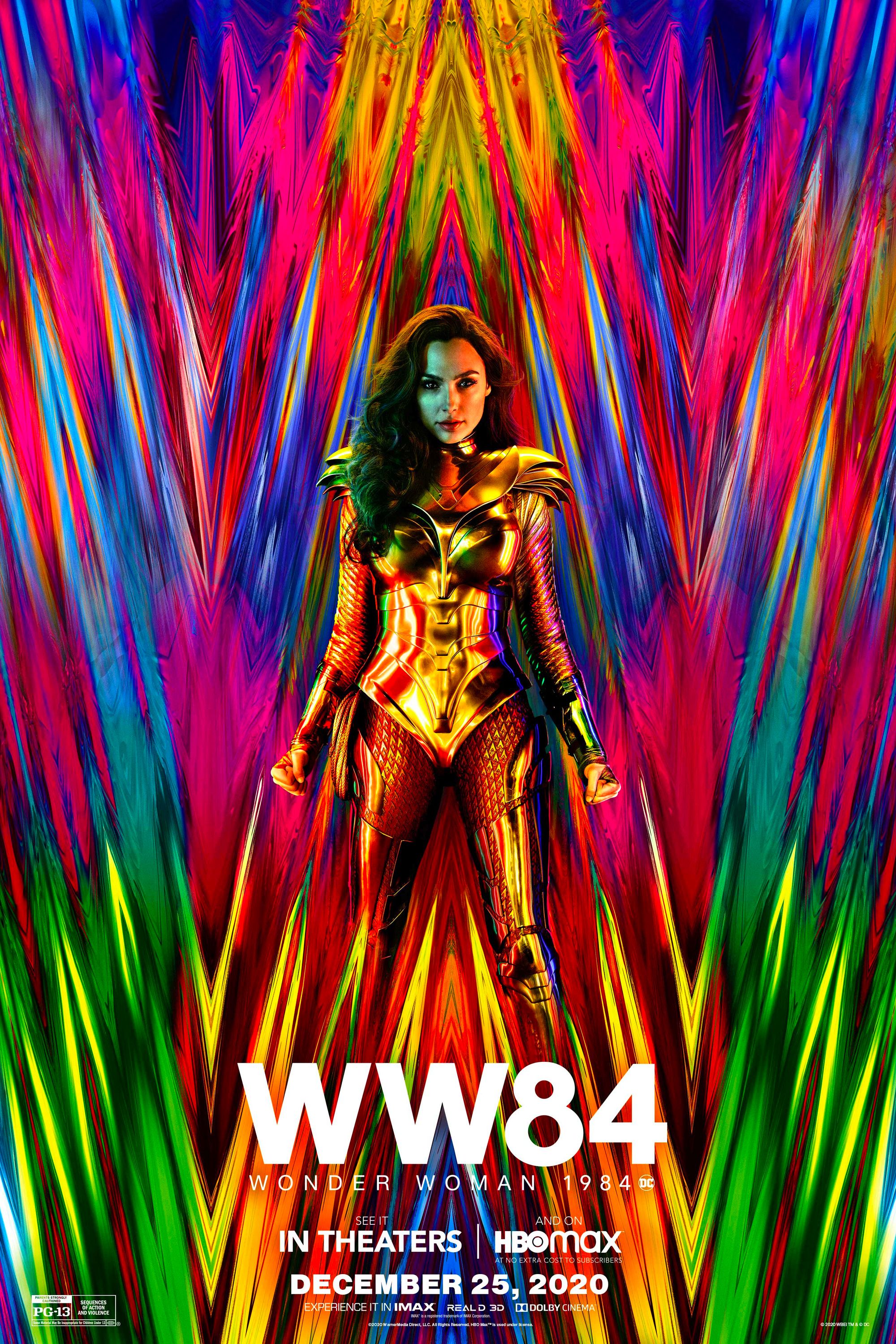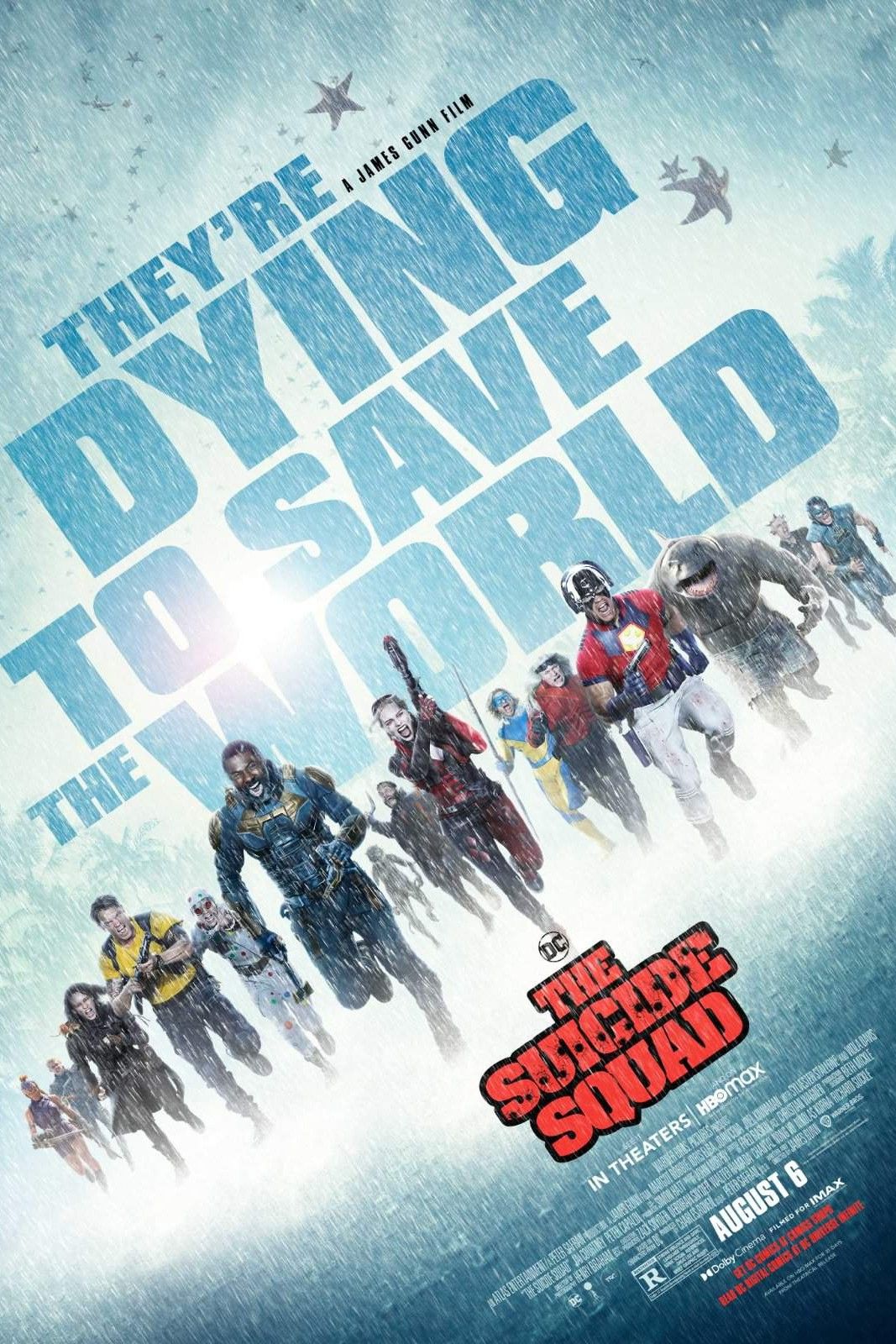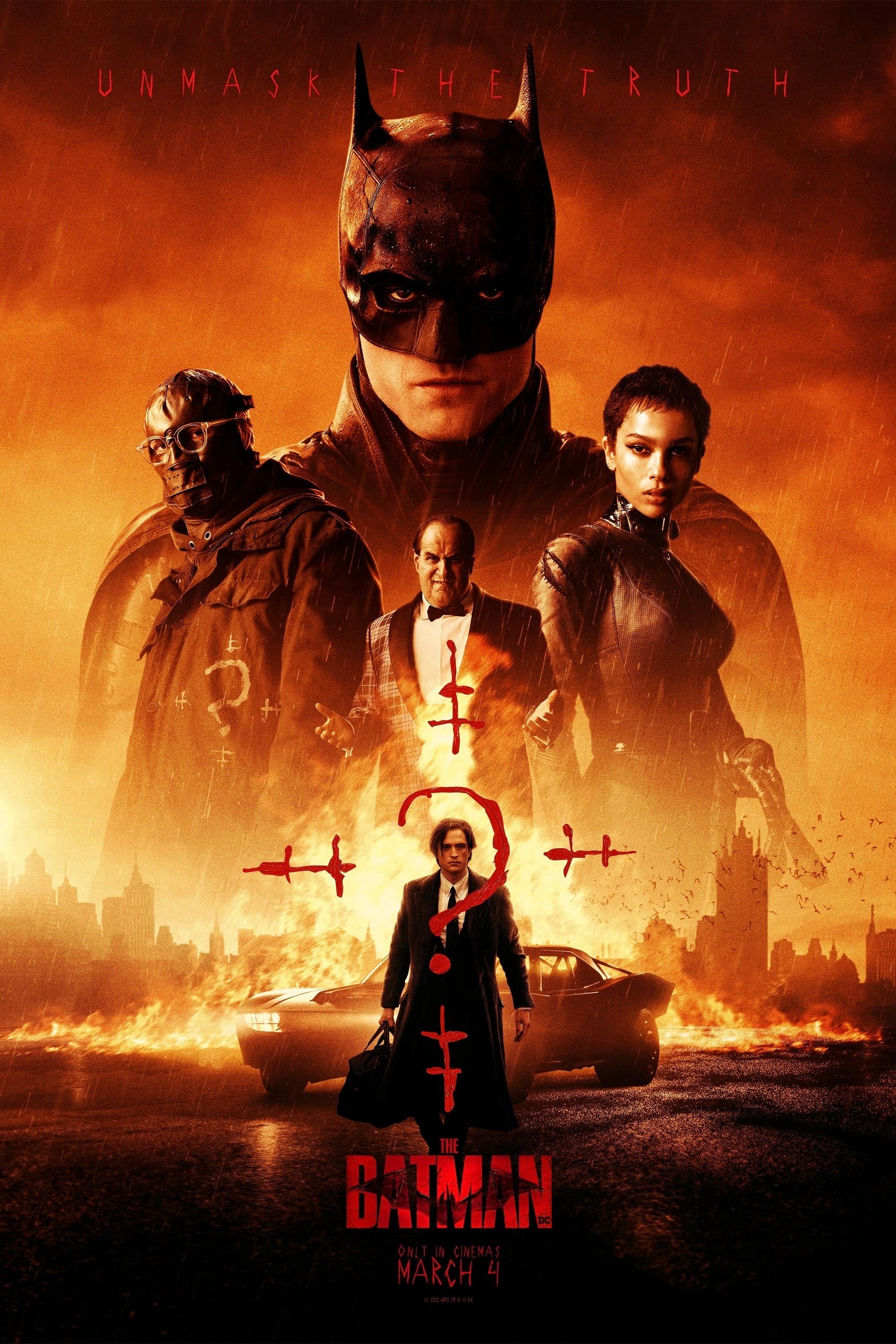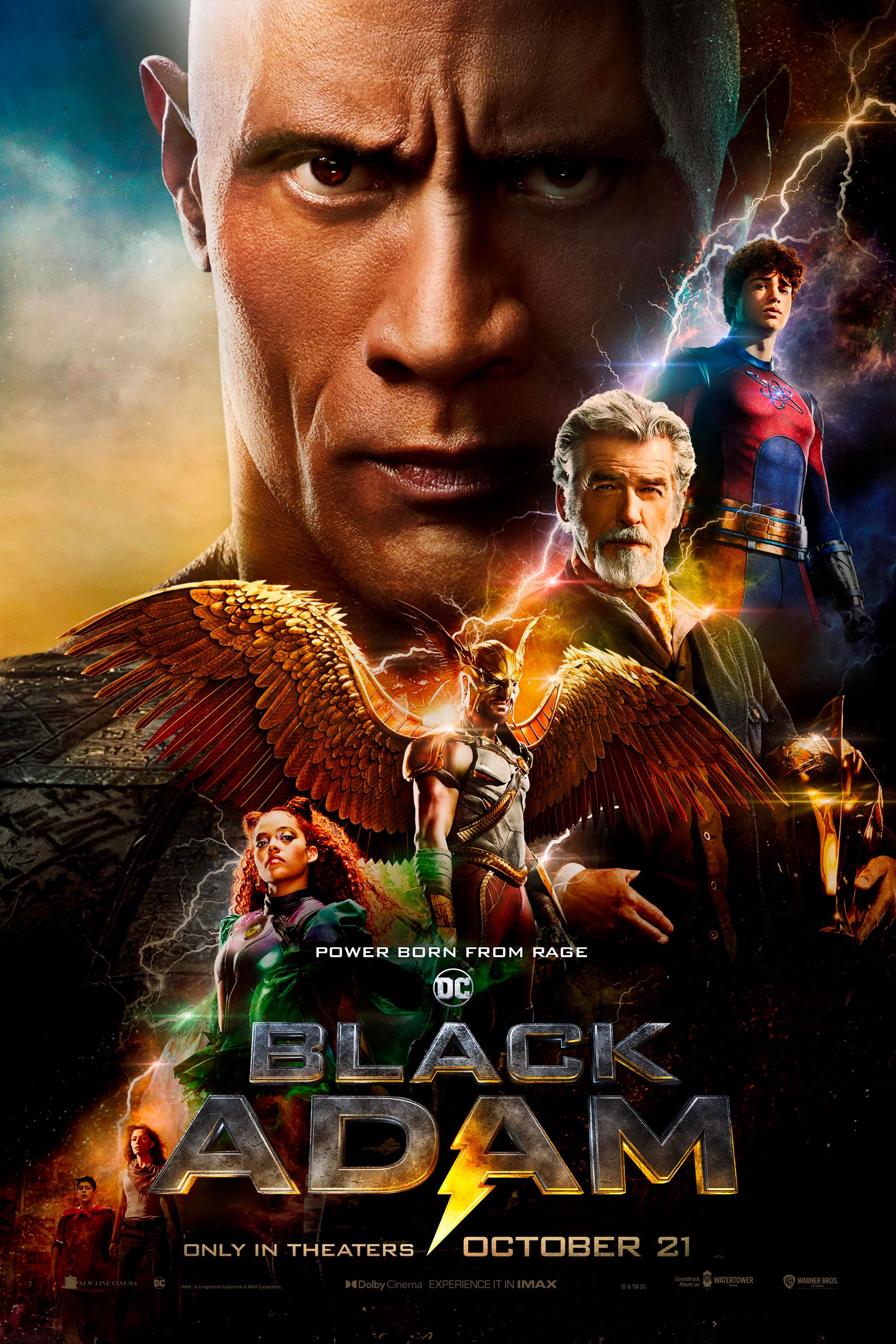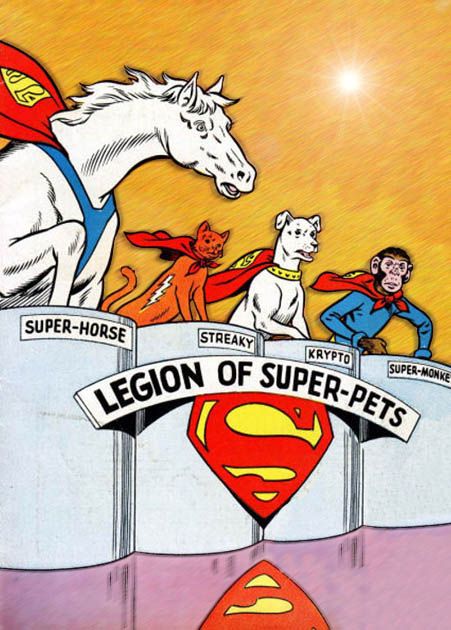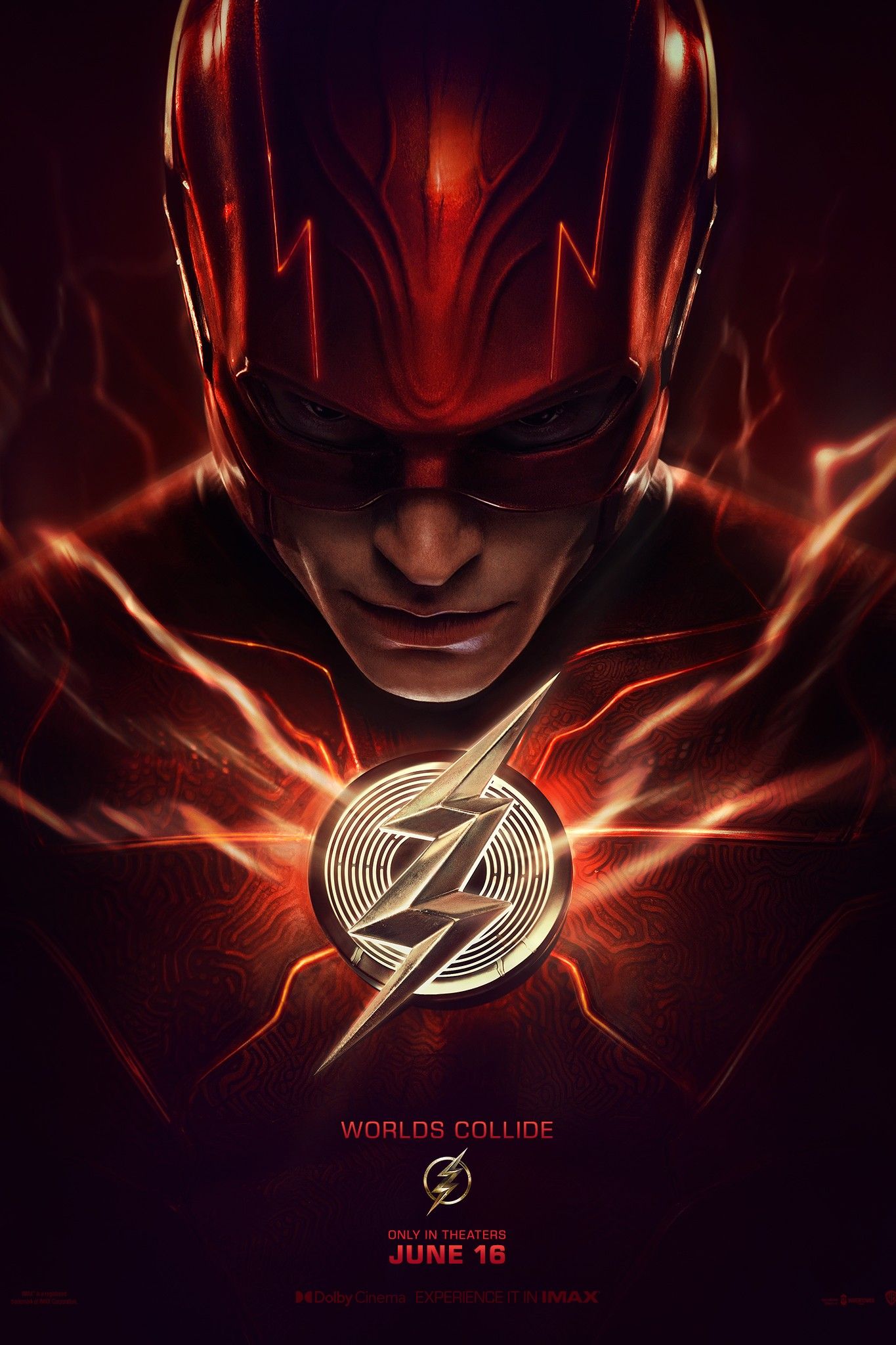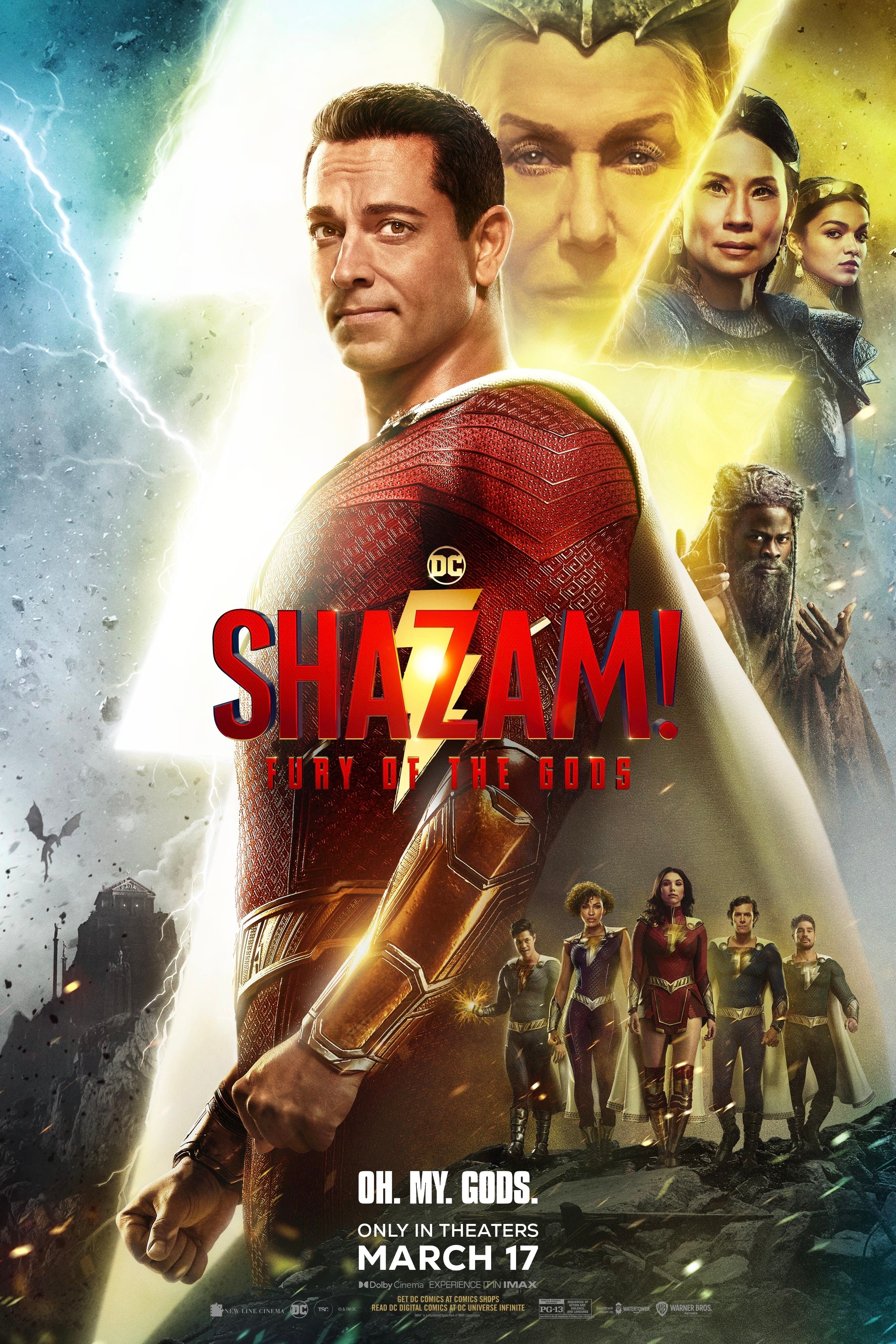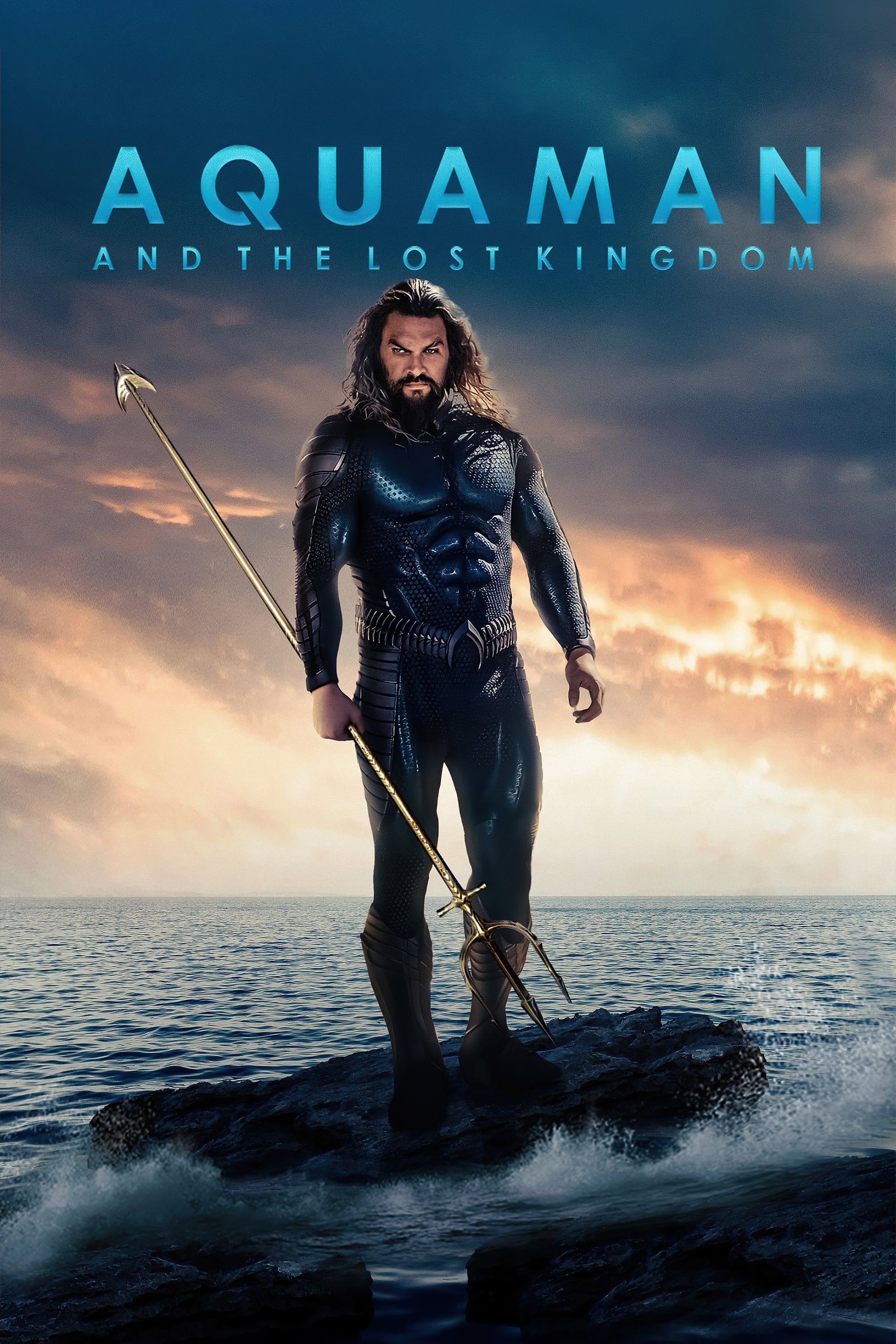How can The Suicide Squad avoid the critical mauling afforded to its predecessor? Released in 2016, DC's original Suicide Squad movie had everything going for it - a star-studded cast, the movie debut of a convention cosplay favorite in Harley Quinn, and a brand new Joker played by a recent Oscar winner. Suicide Squad's good fortune continued when the film's trailers and marketing were met with an enthusiastic response and no small amount of buzz. Despite performing strongly at the box office, however, Suicide Squad was panned by critics and fan reaction wasn't much better.
Given the money-making potential of the property, Warner Bros. were always unlikely to give up on the Squad altogether, but with the first movie's poor reviews in mind, decided to opt for a soft reboot with a mostly new cast, while drafting in James Gunn to direct, fresh from his controversial Disney firing. As things stand, The Suicide Squad (even the title screams "we're going to do it properly this time") is on course for a 2021 release and Gunn has teased new characters, returning favorites and a fresh direction.
It's clear that The Suicide Squad needs to take a different approach compared to the original film, but some hand-picked elements should carry over. David Ayer's film featured several standout performances and a genuine sense of chemistry among the titular team of misfits. Additionally, the central concept of DC villains forced into fighting a dangerous enemy still harbors much potential. The rest of the ingredients, however, need some work - here's what The Suicide Squad needs to do differently.
The Suicide Squad Needs A Better Villain
Picking the right villain and executing them effectively is a problem superhero movies have long struggled with on both sides of the Marvel/DC divide. For every Loki, Killmonger, Joker or Roman Sionis, there are many more swiftly forgotten as soon as the final blow has been landed. Suicide Squad's Enchantress is one of the biggest culprits. After a muddled, chopped-around origin story that feels detached from the rest of the film, Enchantress serves more as a McGuffin than a villain, and when Task Force X do catch up to her, Enchantress is little more than a Cara Delevingne flavored CGI target for the others to aim at.
While Suicide Squad's problems extend beyond just Enchantress and into the misfiring third act as a whole, The Suicide Squad needs a villain who boasts an integrated presence throughout; who is important enough to the plot so as to be almost as irreplaceable as the heroes. More importantly, James Gunn's kamikaze collective need to go up against an opponent who the audience hate so much, they want the good(ish) guys to win. Some suggested Viola Davis' Amanda Waller should've been elevated into an arch villain in the original Suicide Squad, and while the ship might've sailed on that idea, there could be value in the Squad going up against a shady, intelligent politician with questionable morals.
A Heavier Focus On Story
It's a basic concept, but Suicide Squad attracted bad reviews mostly because it doesn't tell a good story. The film's true strength is in its colorful cast of characters, and it's clear that much work was put into creating and realizing the central trio of Quinn, Deadshot and Rick Flag. But this comes at the expense of an intriguing, substantial story. Suicide Squad is front-loaded with setup - large chunks of exposition, lengthy character introductions and the laying out of the Squad's mission. Even with those boxes finally checked off, the second act is interrupted by a largely unrelated detour into the world of Jared Leto's Joker, whose bad tattoos and gun arrangements were controversial enough without the villain also offering virtually nothing to the central plot.
David Ayer has acknowledged some of the failings in Suicide Squad's story, claiming that he'd opt for a more grounded plot and install Joker as the lead antagonist if he could go back in time, both of which would've been significant improvements. The Suicide Squad needs better pacing, less clunky exposition and a more interesting mission for the updated Task Force X. But while there was little praise for Suicide Squad's story, the problems were symptomatic of deeper issues at play...
Warner Bros. Should Trust In Gunn
According to a variety of different reports (THR), studio interference can be found at the root of many Suicide Squad shortcomings. Although Ayer was relatively inexperienced as a filmmaker, Suicide Squad's biggest problem was the different visions the director and Warner Bros. had for the project, which apparently resulted in two separate edits being made - one darker, and one more upbeat. No prizes for guessing which was the studio's. Ultimately, the lighter cut was released theatrically, and pitched a strange tone where supposedly hardened villains were acting with unerring heroism. Constantly walking a line between kooky comedy and edgy darkness, it's perhaps also not surprising that Suicide Squad's editing felt far from natural, chopping around between past and present, dragging down the pace, destroying any sense of continuity and, worst of all, preventing the viewer from fully investing.
Furthermore, Ayer was allegedly given only a small window of weeks to write Suicide Squad before jumping into production, and this could account for the relatively thin plot. Fortunately, Gunn appears to have enjoyed more time and more control over The Suicide Squad, and it's hard to imagine the Guardians of the Galaxy director signing onto a project that wasn't going to adhere to his own vision.
Introducing The Suicide Squad
One common pitfall of the superhero team-up movie (especially with a team entirely comprised of all-new members) is how to naturally introduce each character to the audience and spotlight them in a way that doesn't hinder the momentum of the film. Many movies struggle with this task to some degree, from Avengers: Endgame sidelining Captain Marvel to Justice League abandoning most of Cyborg's origin story. Suicide Squad arguably fares worse than both, as although most characters are introduced well-enough (sorry Katana and Slipknot), the formalities take so long to get through, and the Squad's respective backstories keep pulling the viewer away from the main plot. It's a jarring experience, and an issue frequently cited by Suicide Squad's critics.
Bravely, James Gunn has even more fresh faces on his plate in The Suicide Squad, with Idris Elba, Peter Capaldi and John Cena confirmed alongside Polka-Dot Man and a host of other recognizable names. Gunn needs to find a more measured way of revealing the personalities and backstories of his new Squad, but without repeatedly hitting the pause button on the primary storyline.
Integrating Wider DC Canon
Heading into Suicide Squad, the introduction of Jared Leto's Joker was undoubtedly the headline, and the villain surely played a part in the film's impressive box office haul. But the presence of Joker (as well as a brief appearance by the Caped Crusader himself) feels tacked onto the rest of Suicide Squad, and it's hard to shake the feeling that Gotham City's Clown Prince of Crime might've been thrown into the mix just to put a recognizable, pale face among a cast of characters relatively unknown to the casual audience. There's no harm in Warner Bros. making the most of the vast quantity of DC characters at their disposal, but such additions must be complimentary to the film as a whole, instead of a detrimental and unnecessary distraction.
This fact will not be lost on Gunn, who enjoyed mega success with Guardians of the Galaxy, and managed to turn the likes of Star Lord, Drax and Groot from relatively niche comic heroes to household names, proving that it's better to elevate lesser-known characters through strong development and a good story than to parachute in an existing icon to add star-power. As things stand, Quinn remains the biggest confirmed character for The Suicide Squad, which is a positive indication that the Joker mistake won't be repeated.
Harley Quinn (But Only A Little)
Margot Robbie's Harley Quinn is widely considered to be the most enjoyable part of Suicide Squad, and is probably one of the few elements that could be lifted straight into James Gunn's follow-up without any alterations whatsoever. With that said, Quinn is vastly improved in her more recent outing as part of the Birds of Prey lineup. Less defined by Joker, Harley finds herself in what essentially amounts to her own solo movie, and more shades to her personality emerge as a result. Robbie's second DC performance also finds more success in blurring the line between protagonist and villain, and this especially will prove vital in her Suicide Squad return. While there was nothing especially wrong with Suicide Squad's original Harley Quinn, it would be satisfying to see her Birds of Prey development carry over into The Suicide Squad.

